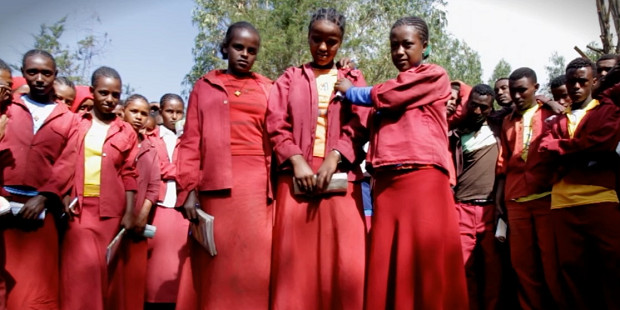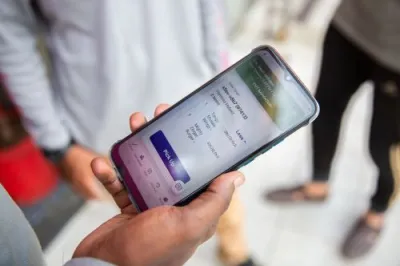What Does the Future Hold for Youth Savings in Ethiopia?
A common criticism of international development work is that it is unsustainable. Grant funding dries out, the international development agency leaves, and the program or services offered phase out. What would a financial products and services program aimed at sustainability look like? A recently concluded project in Ethiopia is a promising illustration.
Lenege (meaning “for tomorrow” in Amharic) is a youth savings product offered by PEACE MFI S.CO in Ethiopia. The financial service provider (FSP), with technical assistance from Women's World Banking, began offering Lenege in 2011 as part of YouthStart, a UNCDF initiative established in partnership with The MasterCard Foundation. The aim was to increase access to savings and financial education for low-income youth in Sub-Saharan Africa. Since its rollout five years ago, the youth savings product, supported by YouthStart, has significantly contributed to the growth of PEACE MFI S.CO’s savings. As of June 2016, the number of youth clients exceeds the number of adult clients: 37,212 to 28,291.
With the end of the YouthStart program, we reflected on the future sustainability of Lenege and wanted to share how other FSPs targeting low-income youth can learn from this experience. Overall, PEACE MFI S.CO is doing many things right based on best practices in the field. Nevertheless, our analysis shows that they have an opportunity to make their youth savings product even stronger.

What Lenege is doing right
PEACE MFI S.CO senior management built internal buy-in to target the youth segment by creating a Lenege task force, communicating the importance of youth savings to all staff, and assigning specific roles to senior staff who were accountable for the program. The FSP created the Child and Youth-Inclusive Finance and Education Department in December 2014 to support institutionalization efforts for Lenege and is striving to continue key activities, such as marketing and financial education, that they were able to start thanks to YouthStart. PEACE MFI S.CO also designated a child and youth-inclusive finance and education manager at the head office, as well as a youth champion at every branch.
This is coupled with management stressing to all branches the importance of performance against gender targets through regular monitoring and follow-up. This led to outreach tactics such as sponsoring events (for example, volleyball tournaments) that were appealing to girls. PEACE MFI S.CO also piloted Lenege to married, rural girls in Amhara, in partnership with the Population Council’s Meserete Hiwot Program for Married Adolescents in Ethiopia. Participants and graduates of the program, which consisted of mentor-facilitated weekly groups covering a comprehensive livelihoods curriculum (reproductive health, HIV/AIDS, sanitation, and more), were linked to the Lenege account and complementary financial education.
In addition, the FSP increased its budget for marketing and financial education and regularly provides financial education in schools post-grant. Branches market Lenege to the community using local mini media (like public service announcements) and postcards, and at coffee and tea events. Ongoing deposit collection at schools and other accessible areas help make Lenege continually visible.
In terms of ensuring continued uptake and use of accounts, PEACE MFI S.CO decided not to charge dormancy fees for inactive accounts and is promoting deposit behavior through financial education. This has helped Lenege savings balances become an important source of low-cost funds for the institution for on-lending.
What Lenege could be doing better
The institution has not yet developed a migration strategy for Lenege clients once they surpass age 24, which is a missed opportunity to build customer loyalty, better serve client needs throughout their life, and ensure youth clients remain with the financial institution in the long-term. The institution is aware of this gap and is committed to developing a strategy in the long term. Additionally, the number of adult savings accounts at PEACE MFI S.CO has increased since Lenege was launched; however, this increase may be due more to the increase in branches or natural growth (i.e., expansion with or without the existence of Lenege). PEACE MFI S.CO’s system currently does not capture the number of adult savings accounts opened by Lenege client parents or guardians. Also, there are currently no cross-selling efforts to reach Lenege parents/guardians with other savings or credit products.
Unlike some other financial institutions, PEACE MFI S.CO was a credit-driven institution, and youth — not adult — savings was a key driver of its savings portfolio increase. The FSP has an opportunity to reach even more parents/guardians with its products given the strong growth and outreach activities of Lenege, and further build its adult savings portfolio.
PEACE MFI S.CO’s experience highlights the important role of funders in helping to jumpstart youth savings programs at financial institutions seeking to serve low-income youth. But it is equally vital that financial institutions are prepared to cover the necessary investments needed to institutionalize their youth products, particularly after donor funds are depleted. In the case of PEACE MFI S.CO, they continue to offer the youth savings product and now have a child and youth finance officer since funding ended in 2014.
If designed and operationalized well, these products can achieve profitability and sustainability on their own, which is a benefit for the institution but also for the financial inclusion of low-income youth in the long-term.




Comments
Interesting blog. The
Interesting blog. The business case for youth savings is there although many FSPs do not see it yet. In as much as the savings are small and unpredictable, youth get money from varied sources like farming, casual labour, pocket money, disposal of assets that they can save. Giving them access to a formal account at an early age builds loyalty as well as the opportunity to cross-sell to their friends and family members. The only tricky part for youth who are below the age of getting a formal identification is that they cannot operate such accounts by themselves and need to have a trusted adult (who in most cases they want to keep the money a secret from!)
What Lenege is doing is
What Lenege is doing is wonderful.Youth have been headache as far as financial inclusion is concerned.If they can embrace financial inclusion then we are heading in the right direction.Since lenege was doing it on a pilot basis and they have succeeded then it is important to review and have a systematic phases once youth passes 24 years then the accounts opened can be monitored or new products for past 24 years can be developed so that we they loss track of the youth they moulded from the scatch.This is a worthy mission which requires concerted efforts from different Financial inclusion players to see how they can pick where Lenege has reached.To be more attractive to the youth things should be digitalis ed so more can be attracted.Otherwise thanks lenege as financial inclusion practioner we can borrow a leaf and even improve on it.
Thanks once more lenege
Dear Wilfred murunga,
Dear Wilfred murunga,
Thank you for your valuable comments. "Lenege" is the product. It is PEACE MFI S.Co that runs this program. Originally it was supported by UNCDF and currently PEACE MFI S.CO sustainably caring this program effectively.
Nigerian microfinance banks
Nigerian microfinance banks need to go back to school. When I read posts like this and the innovation, social impact and the opportunities created in via microfinance in other countries, I ask myself what is happening in my country. With vast opportunities and a large youth population that lack three major things: proper values, mentorship and engagement. This kind of initiative can create a win-win for both microfinance banks and the the youth population. The youths are always crying for expression and we need to engage them constructively.
Add new comment